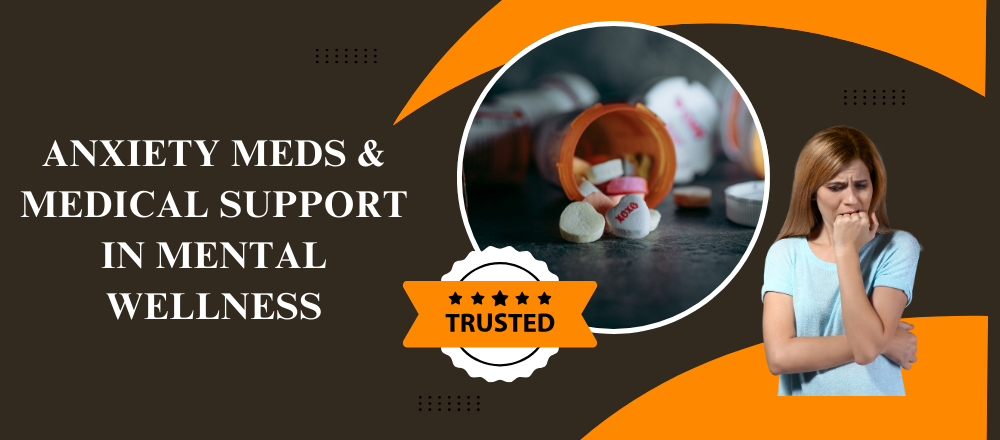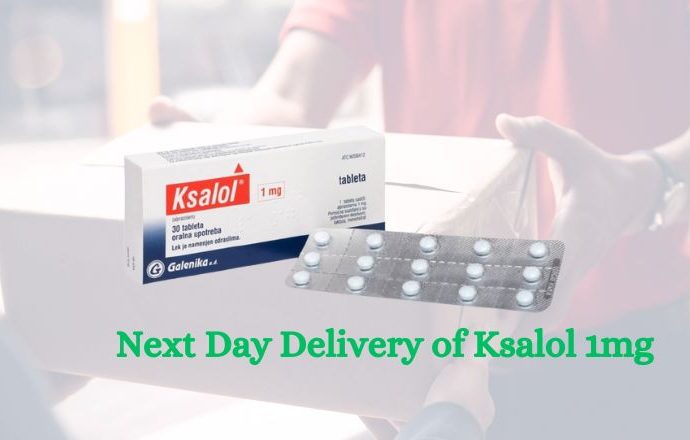In recent years, mental health has attracted a lot of attention as civilizations all over the world have realized how important emotional wellness is. Medication has become an essential tool in the management of a variety of mental health issues, in addition to treatment and lifestyle modifications. But the question still stands: does taking medicine improve mental health, and what are the possible long-term consequences of depending so heavily on pharmaceutical interventions?
Understanding The Role Of Medicines For Optimal Mental Health
For many people, medication is now an important part of mental health treatment. Medication can be very effective in helping to reduce the symptoms of mental health conditions like schizophrenia, bipolar disorder, depression, and anxiety when combined with psychotherapy, lifestyle modifications, and support systems. These pharmaceuticals, which are intended to address different facets of an individual’s mental health, are frequently divided into antidepressants, anti anxiety meds, mood stabilizers, antipsychotics, and stimulants.
For example, antidepressants function by controlling neurotransmitters such as dopamine, serotonin, and norepinephrine in the brain. For people suffering from anxiety or depression, this helps to promote emotional well-being and regulate mood. On the other side, mood stabilizers, which help to control excessive mood swings, are frequently recommended for disorders like bipolar disorder. By changing the chemicals in the brain that influence perception and thought, antipsychotics are used to treat the symptoms of schizophrenia and other psychotic diseases.
These medicines can have significant positive effects, enabling people to function better, participate in therapy more successfully, and reclaim their sense of autonomy. However, it’s important to think about the long-term consequences of using medicine to treat mental health issues. It is essential to understand how medication management affects medical care. This procedure entails monitoring drugs to ensure their effective use. It includes writing prescriptions while keeping an eye on the dosages, effectiveness, and possible adverse effects of the drugs over time. To address symptoms and enhance mental health conditions, prescribed pharmaceuticals such as mood stabilizers, antidepressants, antipsychotics, and anti-anxiety medications are used in health interventions.
Because the success of your therapy can be greatly impacted by how well you follow your drug regimen, you must take your prescribed dose regularly and adhere to the treatment plan. Following the recommended timetable improves well-being, prevents setbacks, and helps control symptoms. However, people may be discouraged from seeking or following recommended treatment due to worries and misconceptions around drugs.
What Is The Expected Duration Of Action For Mental Health Medications?
Within a few hours or less, stimulants and anxiolytics begin to work. They are only in your body for a brief period. The effects of antidepressant drugs often take two weeks to manifest. For additional information, consult your physician or pharmacist, or consult the drug information sheets that are currently accessible online. Depending on their metabolism and body size, various people may experience different medication effects. Two or three weeks after you begin taking them, your doctor will want to visit you to make sure they are making a difference in your condition.
The full effects of antipsychotics can take anywhere from six weeks to several months to manifest. Your doctor will want to see you frequently to assess your progress if you are prescribed antipsychotics. Speaking candidly and openly with your doctor about your feelings since beginning medication is imperative. Although they have been educated to handle delicate situations, you may feel awkward or ashamed to share with them intimate details about your feelings and physical condition.
Using Medication And Other Strategies In Balance
Even though drugs can be quite helpful, they work best when combined with other forms of treatment. To manage mental health issues, self-care techniques, lifestyle modifications, social support, and psychotherapy are essential. Open communication between the patient, their mental health provider, and any other pertinent healthcare providers should be a part of the choice to utilize medication.
To evaluate the efficacy of medication and treat any new issues, it is essential to schedule routine check-ins with a mental health expert. Depending on a person’s progress and any new developments in their mental health journey, the drug regimen may need to be adjusted.
Conclusion
Medication plays a complicated and multidimensional function in treating mental health issues. It’s critical to understand the possible long-term impacts of pharmaceuticals and the significance of a comprehensive approach to mental health, even while they can offer much-needed comfort and support. Instead of being seen as stand-alone remedies, medications should be used in conjunction with other therapy approaches and lifestyle modifications. The huge range of individual experiences with mental health drugs emphasizes the necessity of individualized treatment programs and continuous observation.
We can negotiate the complexities of pharmaceutical use and strive for long-term emotional well-being by establishing a collaboration between patients, mental health specialists, and healthcare providers.
Note: We support a strategy that takes into account healthcare through counseling, medication management, lifestyle modifications, and supportive care.











